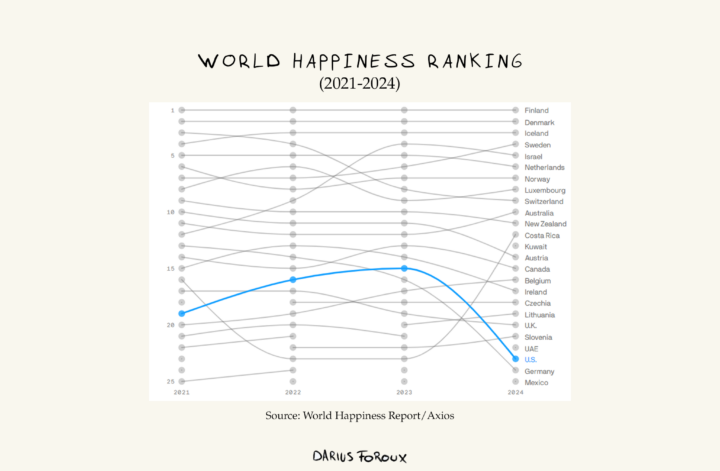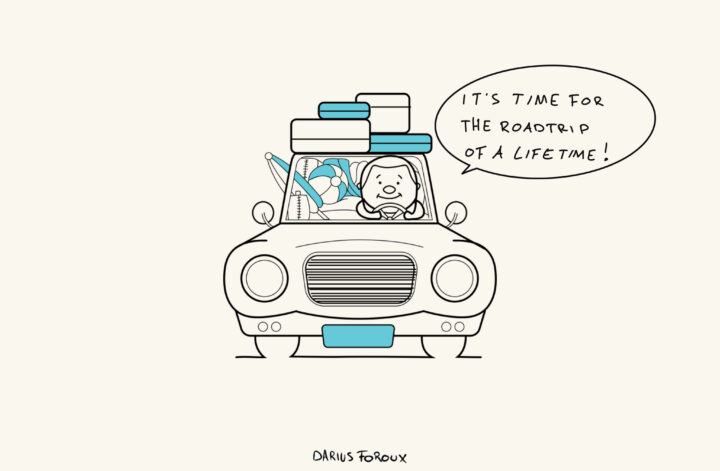A while back, I read a WSJ article about how companies started tracking the happiest of their workers. 1Source: The Wall Street Journal The article concluded:
“Employers are turning to sentiment-tracking software, daily surveys, and apps to monitor workers’ mental states.”
One CEO says that the reason they track happiness is because, “I want everyone to be happier every day, more than they were before.”
But demanding a happy face doesn’t work. We can’t demand happiness. We can only create an environment that makes people feel comfortable so they can be themselves. Which would eventually lead to happiness.
We’ve all been in situations where we felt obligated to put on a facade. Maybe it was a family gathering where you had to pretend to be more successful than you actually are.
Or maybe it was at work, where you felt the need to appear more enthusiastic about a project than you genuinely were. These instances are not only emotionally draining, but they also strip us of our authenticity.
Anthony de Mello, a spiritual teacher, once said:
”When I know that I am nothing, that’s wisdom. When I know that I am everything, that’s love. My life is a movement between these two.”
The moment we start embracing our true selves, and allow others to do the same, we pave the way for genuine happiness.
Acceptance is the key
Acceptance doesn’t mean condoning negative behavior or ignoring your flaws. It means understanding that growth and success are journeys. Our happiness will always be a work in progress.
We all have our strengths and weaknesses. By accepting our and other people’s imperfections, we understand and empathize more with everyone.
At work, for example, when the manager accepts that not all team members are alike, they can create a more effective working process.
Some folks are more introverted/extroverted, while others may have different ways of solving problems. It’s all about seeing people’s strength and weaknesses. And then leveraging those to get things done well.
The psychologist Carl Rogers said it well:
”The curious paradox is that when I accept myself just as I am, then I can change.”
Demanding happiness from others is a futile exercise.
Instead, let’s focus on creating environments that encourage authenticity and effectiveness.
The thing is, happiness is not a requirement – it’s a byproduct of being true to oneself and working according to one’s strengths and interests.




